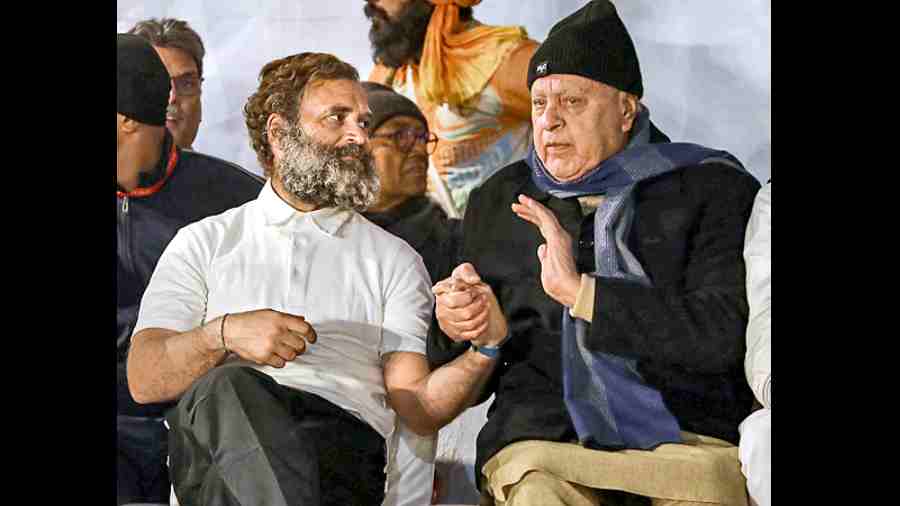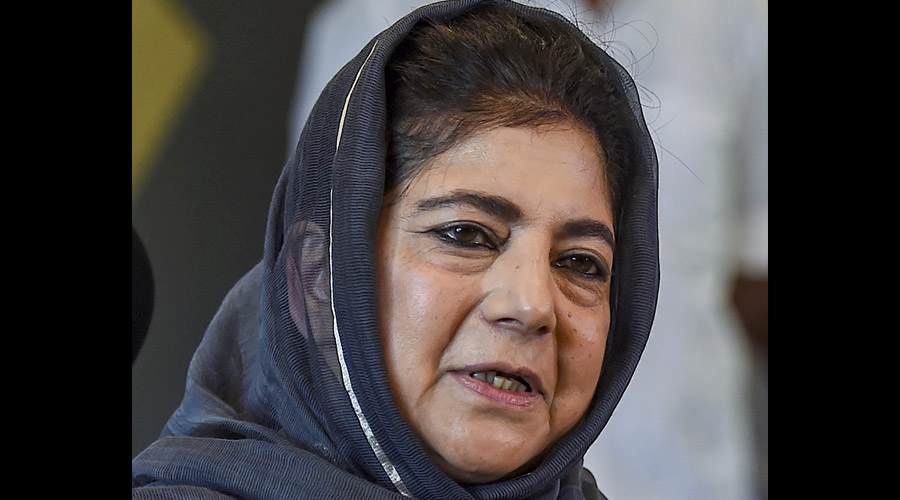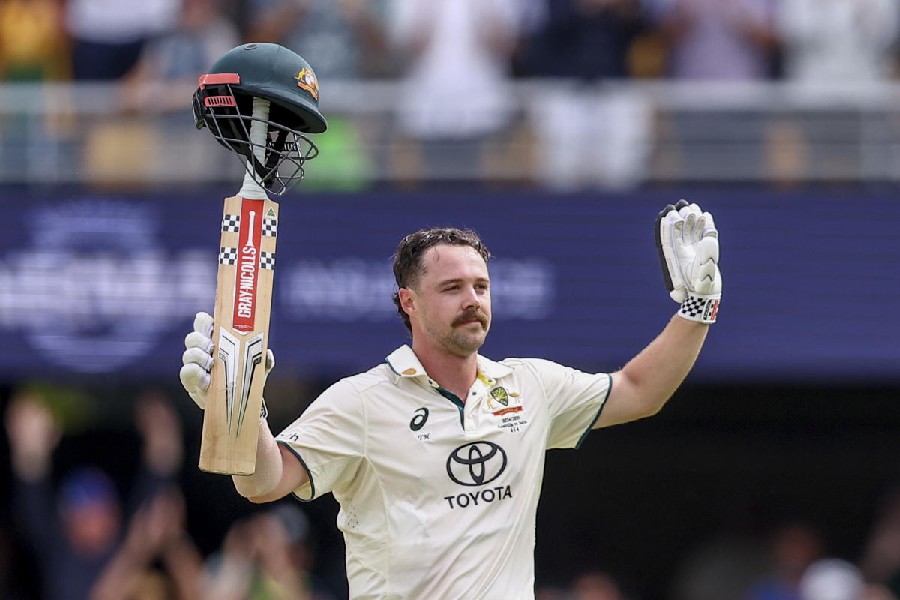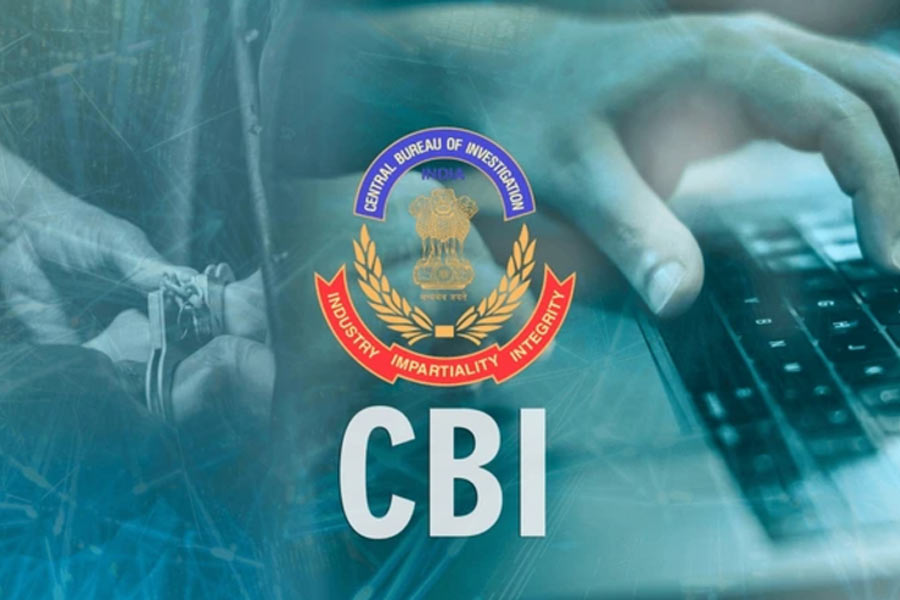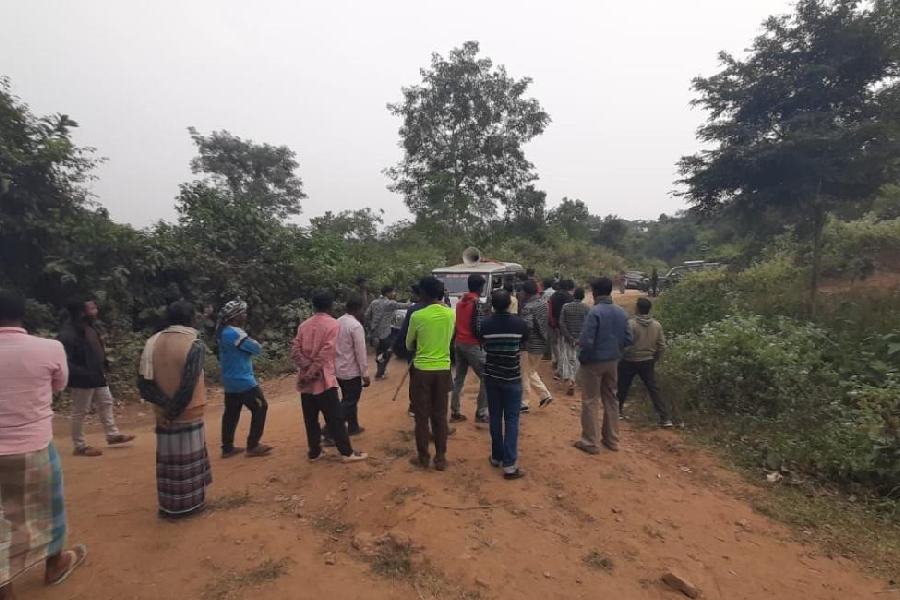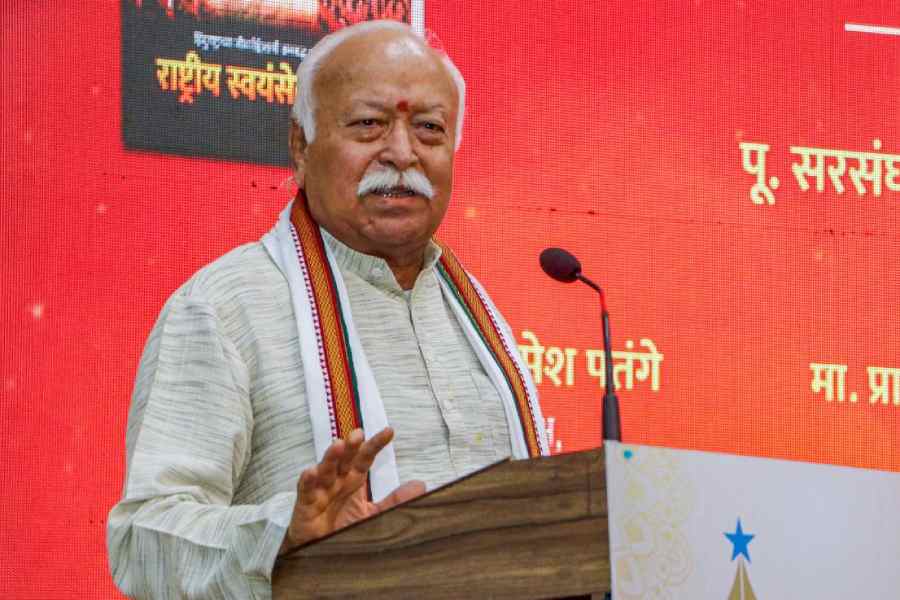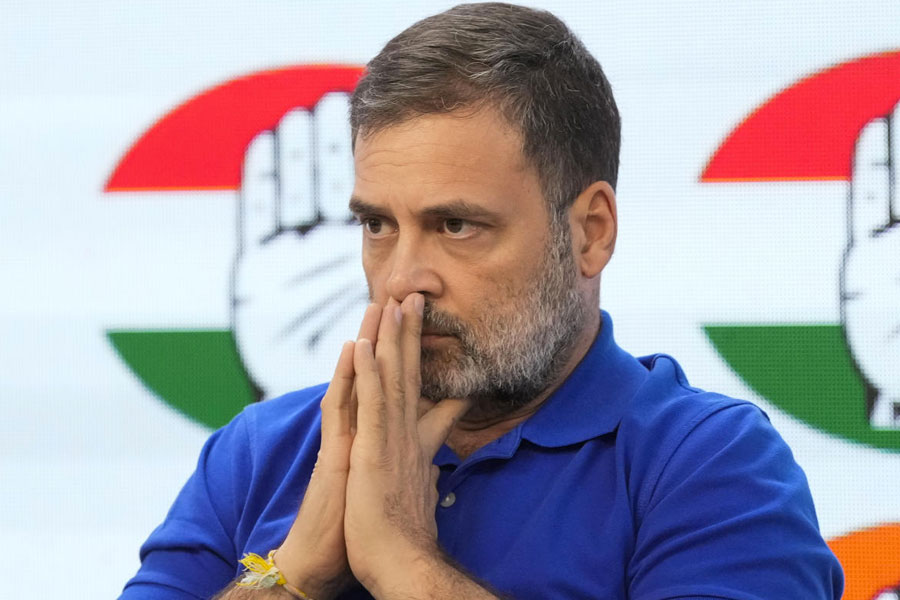Farooq Abdullah on Thursday travelled 350km from Srinagar to Lakhanpur and the nearby Madhavpur bridge, which connects Jammu and Kashmir with the rest of the country, to embrace a politician who stands for a particular idea of India.
Seventy years ago, Farooq’s father and then Jammu and Kashmir prime minister Sheikh Mohammad Abdullah had sent the police to the same place to arrest a politician who stood for another.
Farooq was here to embrace Rahul Gandhi, who emphasised his Kashmiri “roots” as his Bharat Jodo Yatra entered Jammu and Kashmir after a 3,200km walkathon over more than four months. For many Kashmiris like the former chief minister, Rahul’s idea of India guarantees an inclusive country with a special place for them — one that was once guaranteed.
On May 11, 1953, this same bridge witnessed the arrest of Jana Sangh leader Syama Prasad Mookerjee who had sought to “complete” Kashmir’s integration with the cry: “One country can’t have two constitutions, two Prime Ministers or two flags.”
Kashmir then had its own constitution, a prime minister and a flag.
Mookerjee died in custody two months after his arrest. Soon after, Sheikh Abdullah lost his chair and was thrown into prison by Prime Minister Jawaharlal Nehru. Mookerjee’s idea was finally implemented in August 2019 with the dilution of Article 370, which gave Jammu and Kashmir a special status and which Sheikh Abdullah had defended all his life.
At an electrifying evening on Thursday, Farooq, who heads the alliance fighting for the restoration of Article 370, shook hands with Rahul as thousands of supporters across ethnicities and religions — Kashmiris, Dogras, Gujjars, Paharis and Ladakhis — many holding the Tricolour, cheered to the tunes of Dogri, Punjabi and Kashmiri songs and chanted slogans in favour of a united and inclusive India.
Rahul tried to strike a chord with the people, recalling how his ancestors had travelled to Uttar Pradesh from Jammu and Kashmir.
“I am returning to my roots, starting on foot from Kanyakumari to Kashmir. I am here to learn from you. Each one of you has suffered a lot and I want to humbly say that I am here to share your grief,” he said, without directly referring to the changes brought about in Kashmir in the past few years.
Farooq compared Rahul’s Kanyakumari-to-Kashmir walkathon to one undertaken by Vedic scholar Shankaracharya in the eighth century.
“You are the second person to undertake such travel from Kanyakumari to Kashmir, the reason being that this country is being divided on religious lines and hate reigns supreme,” he said, perhaps careful not to create any awkwardness by mentioning the restoration of Article 370.
The National Conference leader said the issue was whether the idea of India would survive. He expressed hope that the country would together defeat the divisive forces.
The event was held under a statue of Maharaja Gulab Singh, founder of the Dogras’ 100-year rule over Kashmir, showing him mounted on a horse. Rahul was presented with a portrait of the Maharaja, which he warmly accepted.
The Yatra concludes on January 30 with an event at a cricket stadium in Srinagar that is named after Sheikh Abdullah. The Sheikh had fought a bitter battle against Dogra rule but these differences seemed to matter little to the cheering crowd.
Many in Jammu’s Dogra heartland, a BJP bastion, fear losing government jobs and land to outsiders. The resurgence of militancy in Jammu, against the BJP’s promise of crushing it everywhere including the Valley, has left residents worried.
Jammu had sided fiercely with Mookerjee after a group of local RSS leaders, among them Prem Nath Dogra and Balraj Madhok, launched the Praja Parishad Movement to fight against Article 370. Mookerjee’s Jana Sangh became a powerful force in Jammu during the peak of that movement in the early 1950s, turning the region into perhaps the first major RSS laboratory.
Mookerjee had been arrested for entering Jammu and Kashmir without a permit — a requirement for all non-locals at the time that the Jana Sangh founder had chosen to violate in protest against the special status. He was taken to Srinagar and detained, dying in custody at a hospital.
Jammu has in the past three years witnessed protests against government orders that opened up jobs, land and voting rights to outsiders. The presence of the controversial but popular Dogra leader, Choudhary Lal Singh, at Rahul’s rally betrayed the brewing tensions in Jammu, although the BJP remains popular there.

